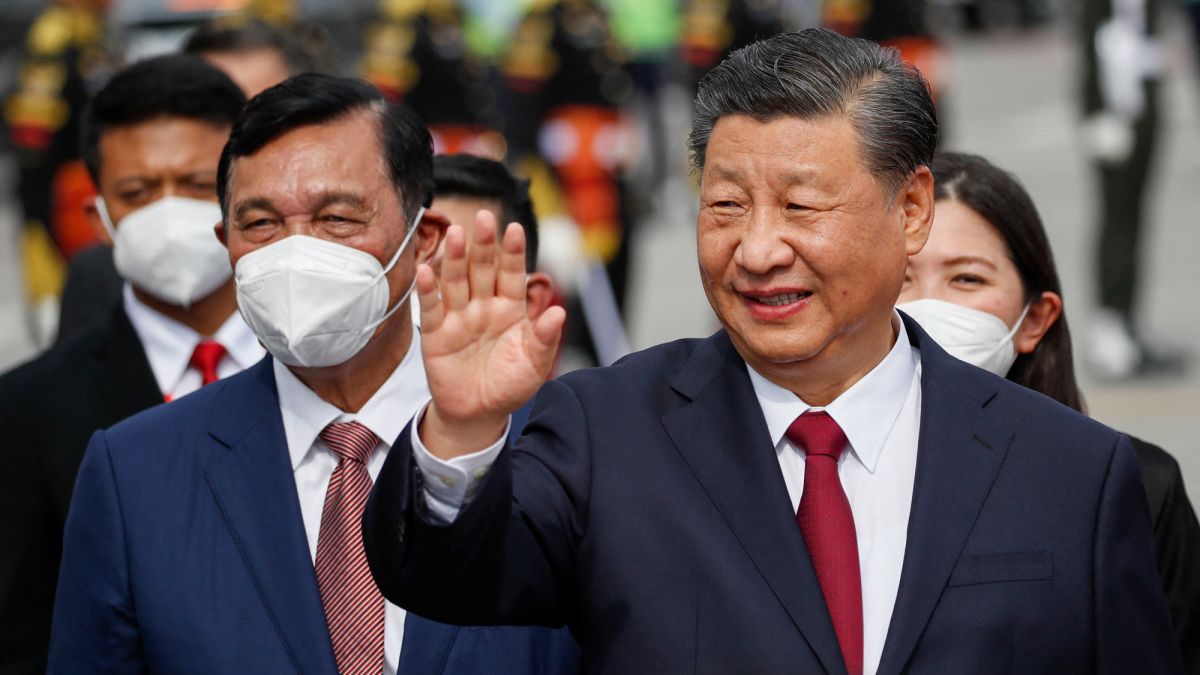
by Hammad Baloch 11 September 2023
The absence of Chinese President Xi Jinping from the G20 summit in India has set the stage for significant global speculation and debate. It is an occurrence that cannot be overlooked, given the pivotal role that China plays on the international stage. In the realm of international diplomacy, such absences are subject to intense scrutiny, as they can signify much more than logistical or health-related issues. Several plausible explanations have been offered for Xi Jinping’s non-participation. Health concerns and scheduling conflicts are common among world leaders, given their demanding responsibilities. However, this absence could also be attributed to broader political and diplomatic calculations. International diplomacy is often conducted as much through symbolism and gestures as through formal negotiations, and the decision not to attend such a high-profile event can convey a variety of messages.
One potential message is related to India-China relations. Over the past few years, these two Asian giants have experienced tensions, most notably along their disputed border. Xi Jinping’s absence raises questions about the prospects for bilateral talks and cooperation. It could signify a continuation of strained relations or an opening for diplomatic engagement. The dynamics of this relationship have far-reaching implications for regional stability and global geopolitics.
Furthermore, China’s role within the G20 is significant. As one of the world’s largest economies, China wields substantial influence in shaping discussions on key global issues, from climate change and economic policies to trade relations. Xi Jinping’s absence could potentially disrupt the group’s dynamics and lead to uncertainties in addressing these pressing global challenges. Economically, India and China are important trade partners. Their leaders often discuss economic cooperation at international summits, including the G20. Without Xi Jinping’s presence, discussions on trade and economic issues may lack the depth and momentum they would otherwise have had. This could impact not only the immediate outcomes of the summit but also the future trajectory of economic relations between the two nations.
Investors and businesses will also be closely watching the summit’s outcomes. Xi Jinping’s absence may introduce an element of uncertainty into the investment climate between India and China. Decisions made at the G20 can influence foreign direct investment flows, and stakeholders will be keen to assess the implications for their operations and strategies. For India, hosting the G20 summit brings both opportunities and challenges. On one hand, Xi’s absence might provide India with an opening to assert itself on the global stage and play a more prominent role in shaping discussions on international issues. On the other hand, India must navigate a delicate balance between its regional interests and global ambitions. This dynamic is emblematic of the broader challenges faced by emerging economies seeking to expand their influence in the international arena.
The response of the Indian government to Xi Jinping’s absence is pivotal. Public sentiment and media coverage can exert significant pressure on the government’s approach to bilateral relations. The government’s statements and actions in response to this absence will be closely monitored, both domestically and internationally. Moreover, the G20 summit’s outcomes have the potential to influence India’s domestic policies. Discussions at such gatherings often shape a nation’s economic and political agenda, particularly in areas related to trade, climate change, and global health. The policies and positions that India adopts in these domains can have far-reaching consequences for its citizens and the global community.
In summary, the absence of Chinese President Xi Jinping from the G20 summit in India is more than a logistical hiccup. It serves as a reminder of the intricate web of international diplomacy, where every decision and action can carry significant meaning and consequences. While the precise reasons behind Xi’s absence remain speculative, the implications are extensive and varied. It can reshape India-China relations, affect economic ties, influence regional and global dynamics, and redefine India’s role on the global stage. As the G20 summit unfolds, the world will closely scrutinize its outcomes and assess the significance of this absence. Ultimately, it highlights the enduring importance of diplomatic engagement and cooperation in our interconnected world.
